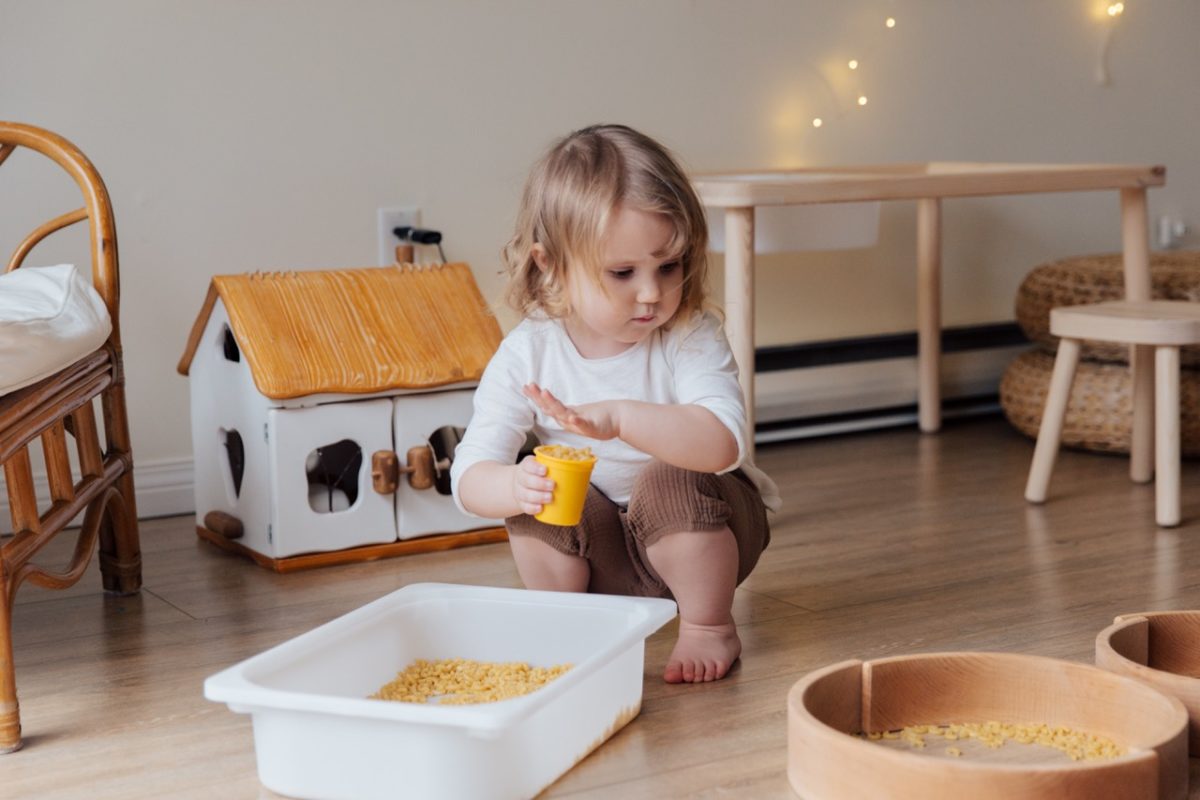Play and movement are vital to development in children. Frequent and daily movement is important for physical development, cognitive growth, and social-emotional learning. Not feeling motivated to get outside or get on the ground with your kids yet? Below are four reasons your little one needs to move, followed by some ideas for play.
- Strengthen fine motor skills— Movement in young children is vital in developing fine motor skills needed for areas of life other than play. Coloring with crayons, writing with pencils, navigating a touch screen, picking up finger foods, and manipulating stackable toys all require fine motor skills. These muscles are developed and strengthened through movement and play.
- Self confidence— Daily play allows your child to grow strong, both mentally and physically. Daily movement is linked in research to numerous cognitive strengths including concentration and problem solving skills, as well as the obvious physical benefits such as development of coordination and strength. The more often your child is moving and refining these skills, the more confident he/she will become in their own ability to play.
- Develop and strengthen coordination— If you’ve never laughed at your toddler “dancing,” you’re missing out. Children’s movement is often entertaining because it is uncoordinated. Encouraging movement (dance, sports, gymnastics, free play) encourages coordination of all kinds: hand/eye coordination, fine and gross motor skill coordination, and rhythm. Research indicates a strong connection between the development of rhythm and pre-reading skills in toddlers.
- Foster social skills— We all want our kids to learn to be a good friend and maintain healthy social relationships… But often parents are setting their kids up for failure without even realizing it. At many schools, playground equipment is traditional: swings, slides, monkey bars. But if a child has never been to a park, or developed physical strength to climb the rock wall or hang from monkey bars, this can be a barrier to social play with peers. Find a nearby public park and encourage exploration and play in various settings to help your child be more confident with many different play environments.
Ideas for daily movement in play:
- Musical instruments and shakers or pots and pans with spatulas
- Ride on toys for children 12 months+ (scooters and balance boards for 2 years+)
- Stackable and manipulative toys like blocks or stacking rings
- Playground equipment (with adult supervision)
- Outdoor play with balls, bats, nets, and climbing structures

